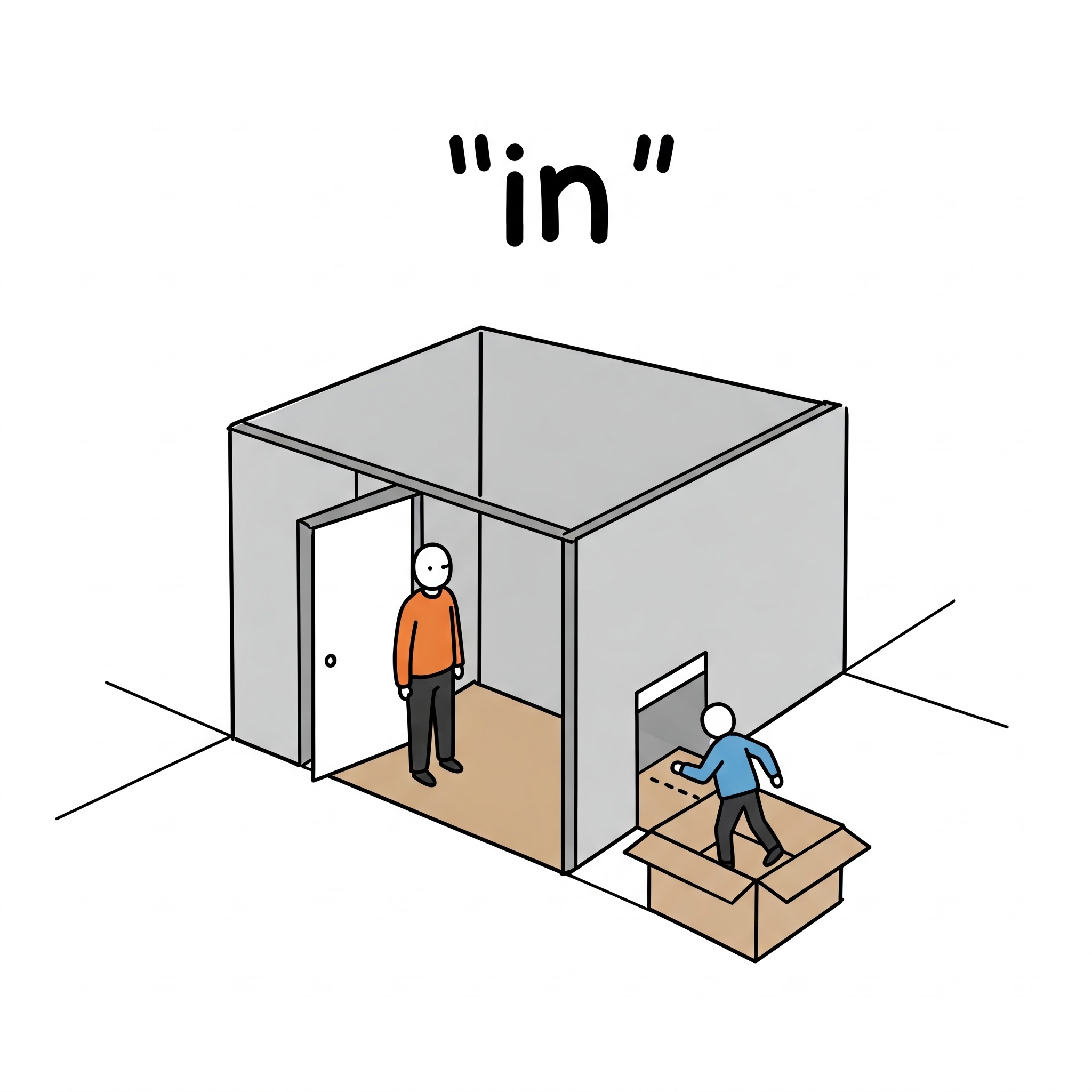In
Definition
In is a versatile word functioning as a preposition, adverb, adjective, or noun. It typically denotes location, inclusion, direction, or state. As a preposition, it indicates being inside or within something. As an adverb or adjective, it can describe trends or being fashionable. As a noun, it refers to influence or connections.
Parts of Speech
- Preposition
- Adverb
- Adjective
- Noun
Pronunciation
American English
- IPA Pronunciation: /ɪn/
- Respelling: in
British English
- IPA Pronunciation: /ɪn/
- Respelling: in
Etymology
The word "in" originates from Old English "in," meaning "inside" or "within," derived from Proto-Germanic "*in" and Proto-Indo-European "*en," meaning "in" or "into." It has retained its essential meaning across centuries.
Derivatives
- Inner (adjective)
- Input (noun/verb)
- Incoming (adjective)
- Insider (noun)
- Inwards (adverb)
Synonyms
- Inside
- Within
- Interior
Antonyms
- Out
- Outside
- External
Usage
The term "in" is widely used to express inclusion or location. For example, "The book is in the bag," or "She is in the meeting." It also conveys trends or influence, such as "That color is really in this season."
Related Terms
- Inside: Refers to being within something.
- Interior: The inner part of something.
- Inclusive: Containing or encompassing everything.
Detailed Definitions
Preposition
- Located inside or within: Indicates being enclosed or included.
- Example: "The keys are in the drawer."
- Indicating a period of time: Refers to an occurrence within a specific timeframe.
- Example: "We will leave in an hour."
Adverb
- Into a place or state: Describes movement or inclusion.
- Example: "Come in and sit down."
Adjective
- Currently fashionable or trendy: Refers to popularity or modernity.
- Example: "That style is in right now."
Noun
- Influence or access: Describes having connections or privilege.
- Example: "He has an in with the manager."
in



🇨🇳 Mandarin Chinese
- 在 (zài)
- IPA: /tsaɪ̯˧˥/
- Respelling: (tsai)
🇮🇳 Hindi
- में (mein)
- IPA: /meːn/
- Respelling: (mein)
🇪🇸 Spanish
- En
- IPA: /en/
- Respelling: (en)
🇫🇷 French
- Dans
- IPA: /dɑ̃/
- Respelling: (dan)
🇸🇦 Modern Standard Arabic
- في (fi)
- IPA: /fiː/
- Respelling: (fee)
🇧🇩 Bengali
- এ (ē)
- IPA: /e/
- Respelling: (e)
🇷🇺 Russian
- В (v)
- IPA: /v/
- Respelling: (v)
🇵🇹 Portuguese
- Em
- IPA: /ẽj̃/
- Respelling: (eyng)
🇮🇩 Indonesian
- Di
- IPA: /di/
- Respelling: (di)
🇩🇪 German
- In
- IPA: /ɪn/
- Respelling: (in)
🇯🇵 Japanese
- で (de)
- IPA: /de/
- Respelling: (de)
🇻🇳 Vietnamese
- Trong
- IPA: /ʈʂəːwŋm˧˩/
- Respelling: (trong)
🇰🇷 Korean
- 에 (e)
- IPA: /e/
- Respelling: (e)
🇹🇷 Turkish
- İçinde
- IPA: /itʃindɛ/
- Respelling: (i-chin-de)
🇵🇰 Urdu
- میں (mein)
- IPA: /meːn/
- Respelling: (mein)





